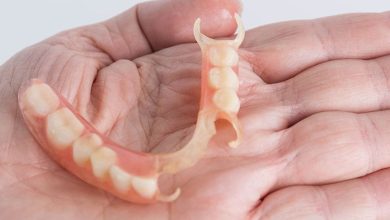ABSENCE OF MENSTRUATION (AMENORRHEA) EVERYTHING YOU NEED TO KNOW
All You Need To Know About Absent Menstruation (Amenorrhea)

![]()
Amenorrhea is the absence of menstruation one or more missed menstrual periods. Women who have missed at least three menstrual periods in a row have amenorrhea, as do girls who haven’t begun menstruation by age 15.
Table of Contents
TYPES OF AMENORRHEA
Primary amenorrhea means you never start your periods.
Secondary amenorrhea means you have had periods, and then they stop, especially for more than 3 months. Even if you don’t have periods. Secondary amenorrhea usually isn’t harmful to your health. It can be treated effectively in most cases. But to avoid complications you must address the underlying conditions that cause amenorrhea
You could still get pregnant. You may not know what caused your periods to stop.
CAUSES OF ABSENT MENSTRUATION
Primary and Secondary amenorrhea can occur for numerous reasons. Some cause are natural, while others are medical conditions that need to be treated.
Natural causes most likely to causes amenorrhea include pregnancy, breast feeding, and menopause.
Lifestyle factors may include excessive exercise and stress. Also, having too little body fat or too much body fat may also delay or stop menstruation.
Hormonal imbalance may cause amenorrhea. They are usually triggered by tumors on the pituitary gland or the thyroid gland ,low estrogen levels or high testosterone levels can also cause them.
Medications can cause amenorrhea is some women Antipsychotic drugs and medications that treat high blood pressure can cause problems with menstruation as well.
Suddenly stopping birth control pills may also lead to several months of absent period before the cycle returns to normal
Physical defects such as structural problems in the female reproductive organs might be responsible for absent or delayed menstruation.
These issues can result from birth defects, tumors or infections that occurred in the womb or shortly after birth. In rare cases, missed periods could be a symptom of Asherman’s syndrome. This occurs due to scarring in the uterus after surgery, which can prevent menstruation.
Genetic disorders or chromosomal disorders,such as Turner syndrome and sawyer syndrome, can sometimes cause late menstruation
For any important information please contact us Email GadgetsNg info@gadgetsng.com
[Button id="1"]




I am really enjoying the theme/design of your website.
Do you ever run into any web browser compatibility problems?
A number of my blog audience have complained about my blog not operating correctly in Explorer but looks great in Safari.
Do you have any recommendations to help fix this issue?
Check out my page – vpn special coupon code 2024
Heya i’m for the first time here. I found this board and I find It really useful & it helped me
out a lot. I hope to give something back and aid others
like you helped me.
Feel free to visit my blog … vpn coupon code 2024
п»їlegitimate online pharmacies india http://indiaph24.store/# buy prescription drugs from india
indian pharmacy paypal